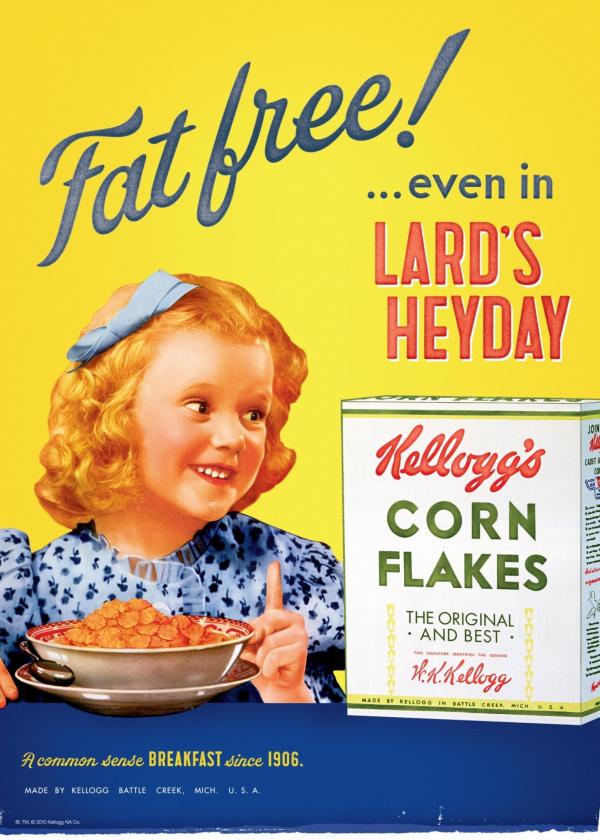
By Mark Schaefer
I’m going to write about breakfast cereal for a moment but I promise it leads to a critical and interesting lesson about content, social media, and marketing. Hang with me?
Last week Kellogg’s earnings report revealed that sales of breakfast cereals have fallen off a cliff. The Wall Street Journal reported that the stock price has plummeted as sales of cereal dropped 5 percent in a single quarter. That is a true business nightmare.
The article went on to report that Kellogg responded to this crisis by firing the head of the cereal division (the second firing in a year) and by hiring 150 new sales people to work on better grocery store aisle displays.
Wake up and smell the Egg McMuffin
Are people eating fewer breakfasts? Are they really that confused by the display of boxes in the grocery aisle?
No. People are eating breakfast more often than ever, research shows, but they are eating more Greek Yogurt and fast-food breakfast sandwiches.
So, in reality, firing people and improving the grocery aisle displays are not going to fix this developing issue, right? Kellogg is simply re-arranging the deck chairs on the Titanic.
The sad thing is that this trend did not suddenly pop from the toaster one morning. The shift in breakfast eating habits has been building for years. But Kellogg leaders seemingly ignored the data about their core market while investing in snack businesses instead of making aggressive moves to re-establish their ownership of the morning meal.
I can imagine that for the last few years some bright Kellogg market researcher has been desperately pleading with executives to look at the sobering numbers. But the response was probably something like “Don’t rock the boat. We have sold breakfast cereal for more than 100 years. Let’s stick to the plan.”
What does this mean for content marketing?
This year I wrote a series of posts about a concept called Content Shock. I also turned it into a fun and fast-paced speech which I have been delivering to enthusiastic reviews around the world. (PR News and HubSpot cited it as one of the top talks of SXSW).
To my amazement, I was recently turned down to present my ideas at a major marketing industry conference because the organizers were afraid it would “rock the boat.” Another industry insider referred to my post as “a loose cannon.”
To review, the series of posts simply stated that with the amount of information on the web expected to increase 600% by 2020 (while our human attention span remains the same), competing with content will be less economical for companies in a saturated content niche. Thus, content marketing will become less effective, or even ineffective, as a strategy for some companies over time.
More than 500 blog posts have been written about that single idea. Less than 10 of those were primarily negative in their sentiment. So most people “get it.”
A typical response is from U.K. marketing executive Martin W. Smith: “(Schaefer) is right and any sentient being knows it. When content explodes and our ability to digest, value and use information remains relatively constant, content as a form of marketing is a nonstarter.”
To be crystal clear, I am NOT saying content marketing is dying or dead as some people have written to sensationalize the issue. Content has always been at the heart of good marketing and always will be. I am only saying that we have to keep our eyes open and be aware that the landscape is shifting dramatically and most of us will need to adapt.
Resistance to change
An example. Organic Facebook reach has dropped from 26% to 6% (or less) in two years. Why? According to Facebook, “Too much content.” The average Facebook user now has the possibility of more than 1,500 stories in their daily stream … and increasing. The company has no choice but to rachet back the reach faster than we can improve the quality.
Competing on Facebook will require more expenditures on quality content, paid Facebook advertising, or both. In any event, many marketing approaches will require some CHANGE to remain relevant. Some will choose to spend their marketing budgets elsewhere.
This is just one tangible example that Content Shock isn’t a theory. It is happening before our eyes with our blogs, videos, and other content streams.
Judging by the positive response to the Content Shock post, most marketers out there already realize that we cannot lead our businesses based on what we wish for. We lead our businesses based on what IS.
But the anxiety expressed by the event organizer who was afraid of the subject and the Kellogg decline in the face of obvious trends reminded me that in most organizations there is a tremendous resistance to change, even in the face of overwhelming evidence.
Don’t get lulled into a false sense of security in your company because people have loved your breakfast cereal for so long that they can’t see the yogurt on the wall. (Does that sentence even make sense?). We can’t dwell on past successes. Celebrate them and then move, move, move.
Look at the signs in your industry. Adapt, adopt, and shift as the best marketing organizations have always done. Never, ever accept complacency as a strategy.
Even if you have to rock the boat to be heard.